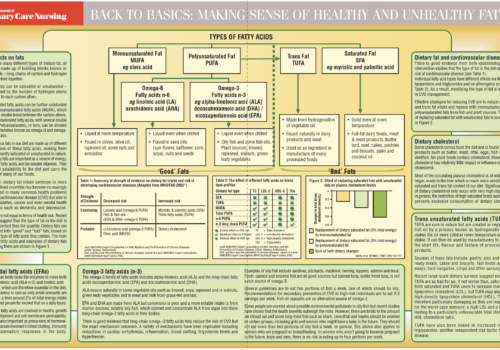The consistency and magnitude of cholesterol lowering achieved following the introduction of statins has resulted in less importance being given to long-term diet-based interventions over the past few years. Nevertheless, lifestyle changes are, and will remain, the preferred option before resorting to long-term drug therapy. They are also essential in people below the cut-off cholesterol level for drug treatment or where side-effects limit drug use. This article reviews the portfolio diet and its role in cholesterol management.
Stable Angina: Making the Most of Cardiac Function
Stable angina is very common. Just under two million people in the UK – over one million men and 840,000 women – have, or have had, angina. In this article we review how new-onset stable angina is assessed, including an update on new investigations, and the latest treatment options including drugs and interventions, based on the most up-to-date guidelines and current practice.
What Happens In Phase III Cardiac Rehabilitation?
The aim of cardiac rehabilitation is to help people who have had a cardiac event recover and resume as full a life as possible and help reduce the risk of further cardiac problems. The ‘cardiac hope and confidence programme’ is a good way of describing the rehabilitation process as many patients tell us that this is what they gain most from the programme. We review what happens in phase III cardiac rehabilitation and what it can achieve in practice.
To Glove or Not to Glove?
With increasing awareness about preventable acquired infections along with ever increasing patient knowledge, it is essential that all healthcare staff understand the principles underpinning infection control. In particular, they need to be clear about hand hygiene and the appropriate use of gloves if they and their patients are to remain safe from the risk of transmission of microorganisms and the infections they cause. We review when gloves are needed and when they are not.
Body Mass Index (BMI) Or Waist-Hip Ratio?
The association between body mass index (BMI) and mortality from both cardiovascular disease (CVD) and coronary heart disease (CHD) is well accepted. Individuals with high BMIs are also at increased risk of developing other conditions such as sleep apnoea, osteoarthritis, female infertility, varicose veins, gastro-oesophageal reflux and stress incontinence. BMI has been the gold standard for predicting health by measuring body weight in relation to height. However, although BMI may be helpful in estimating overall obesity, it is becoming increasingly apparent that waist-hip ratio, which estimates central obesity, is a more accurate predictor of the risk of health problems generally and CVD in particular.
Back To Basics: Making sense of healthy and unhealthy fats
Peripheral Arterial Disease: The Forgotten Aspect Of CVD
Peripheral arterial disease (PAD) is emerging as being particularly important in terms of cardiovascular risk but its importance as a clear marker for serious underlying vascular disease goes largely unrecognised, with PAD being the only cardiovascular disease not included in the Quality and Outcomes Framework. PAD is often detected late, because patients tend to think that pain in their legs is simply a part of ageing. In this article, we discuss how to recognise and treat people with, or at risk of, PAD using both pharmacological and non-pharmacological interventions. We will also consider when referral to secondary care is appropriate.
Apocalypse Now: Can We Prevent The Next Generation Dying Before Their Parents?
Death rates from coronary heart disease (CHD) have halved in most industrialised countries since the 1970s and those in the UK by 44% over the last decade in people under 65. But death rates from cardiovascular disease have been falling more slowly in the UK compared to other countries, particularly in the younger age group. CHD deaths fell by 49% in men aged 55-64 but only by 30% in younger men aged 35-44 between 1994 and 2004 in the UK. In women, there was only a 20% drop in the 35-44 age group compared to a 56% fall in deaths in the older age bracket. Why are younger people doing so badly and what does this mean for their future?
Practice-Based Commissioning: Collaboration or Competition?
Practice-based commissioning – in which practices and other primary care professionals commission services for their patients – is the latest strategy designed to improve the fit between patients’ needs and service provision. In this article, we take a detailed look at why practice-based commissioning has been introduced, what it will mean in practice and how it will work with other purchasing strategies currently operating.
Editorial
Welcome to the summer issue of BJPCN – just what you need to read on the beach! We are delighted to have a guest editorial from Dr Sue Roberts, the National Clinical Director for Diabetes, providing encouragement for the work that we, as practice nurses, do in improving the management of diabetes.
Diabetes In The Elderly
As the world population continues to age and the proportion of the elderly suffering from diabetes increases compared to other age groups, the health burden of diabetes in the elderly is set to continue to rise. Practices need to be prepared to cope with a near doubling of the number of elderly people with diabetes over the next twenty years. In this article, we review the particular challenges of managing diabetes in the older patient.





















